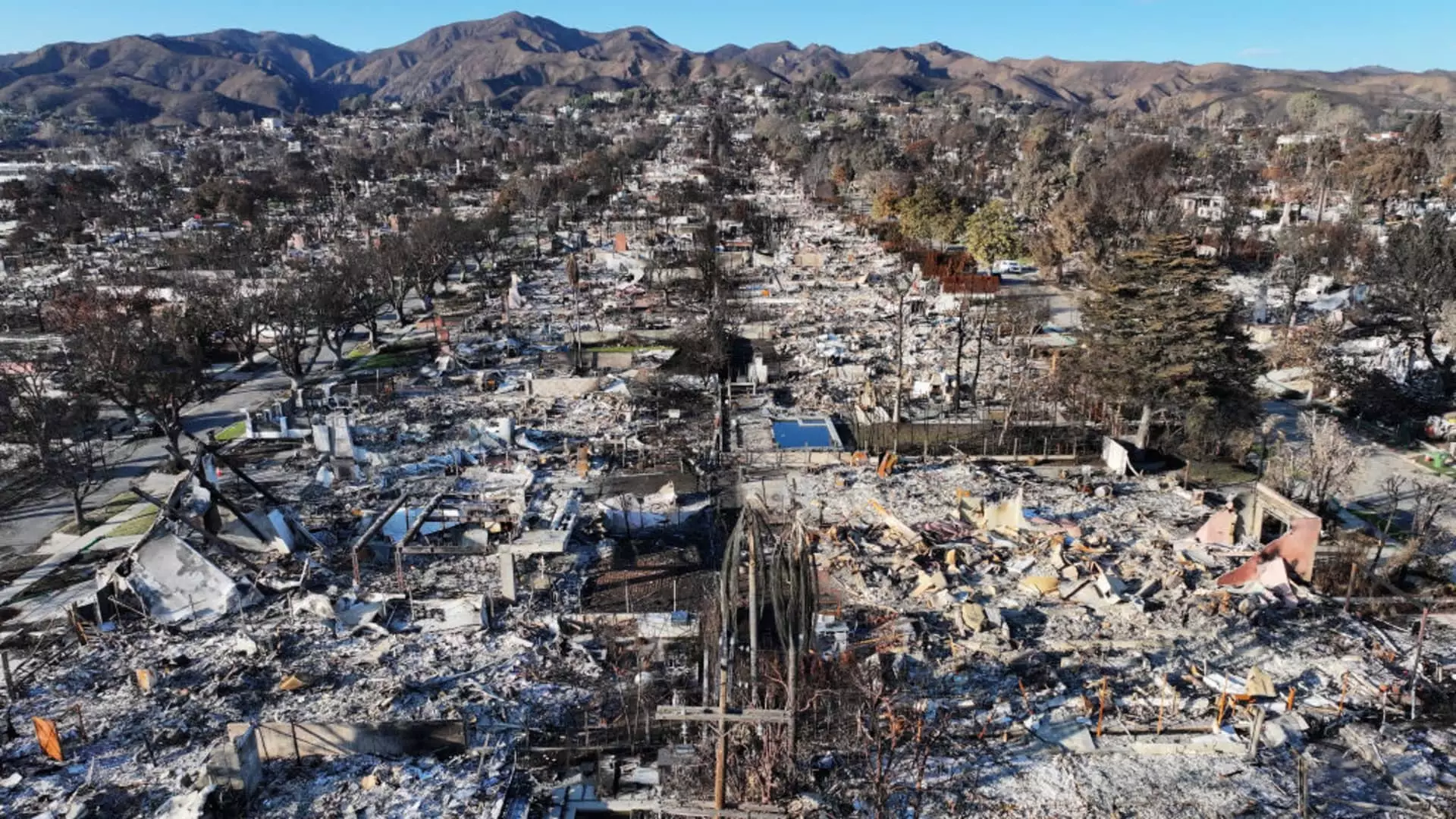The recent catastrophic wildfires that swept through Los Angeles have laid bare the vulnerabilities of major reinsurers, specifically Munich Re and Hannover Re, as they grapple with significant financial losses. The combined brunt of these natural disasters has resulted in staggering claims amounting to roughly $1.9 billion—an eye-watering figure that underscores the harsh reality of climate change and the subsequent financial fallout. This scenario not only highlights the immediate impact of extreme weather events on the insurance industry but also serves as a wake-up call for the need to adapt business models to better handle such disasters.
As climate change accelerates, industries allied with environmental stability, such as reinsurance, must confront the reality that profit margins can quickly evaporate under the strain of natural disasters. These reinsurers, previously seen as titans of financial stability, now face a precarious balancing act urged by both investor expectations and the pressing need to reassess their risk management strategies. The $1.9 billion hit underscores a pivotal moment for these companies; they must urgently reevaluate their approach, lest they become trapped in a cycle of reactive rather than proactive financial management.
Market Implications
The implications of these losses extend beyond the companies directly involved, rippling through the entire insurance marketplace. Munich Re’s reported net profit plummeting by 48% to 1.1 billion euros, and Hannover Re’s own 14% net profit drop to 480.5 million euros, paints a bleak picture for investors and stakeholders. These figures indicate that not only are the reinsurers under immense pressure, but the broader market sentiment is leaning toward skepticism.
As both companies navigate this tumultuous landscape, the drop in stock prices—4% for both entities on a day when the market spiraled—suggests that investor confidence in these venerable institutions may be waning. If financial titans like Munich Re and Hannover Re cannot weather the storms, one must wonder what that says about smaller insurers who lack the resources to withstand such upheaval. The potential for a liquidity crisis looms large, instilling trepidation within investors.
A Call for Reform
However, it is essential to recognize that the challenge, while daunting, is not insurmountable. CFO Christoph Jurecka’s attempts to frame the losses as reflective of “prudent management” feel less convincing in light of the staggering losses. Instead, they should act as a clarion call for rigorous reform. The reinsurers must deploy innovative risk assessment tools and truly embrace sustainable practices, integrating climate data not just into their policy structures, but into their corporate ethos.
The expectation that reinsurers will simply absorb greater losses without necessary adjustments is archaic. Munich Re, despite suffering significant losses, maintains its profit guidance for the 2025 financial year, highlighting a dissonance between optimistic projections and grim realities. This can no longer continue; complacency is an invisible predator, and ignoring the fundamental shifts in natural disaster frequency and intensity will jeopardize not only profits, but potentially the very existence of these companies.
Looking Ahead: Resilience or Complacency?
As the reinsurers grapple with sizable losses, the question remains: Will they emerge from this debacle more resilient or simply exposed? Analysts’ mixed sentiments—overtly negative from RBC Europe and neutral from J.P. Morgan—suggest that while some corners remain optimistic about potential recovery, a significant element of caution lingers. The market’s pulse is indicative of broader societal anxieties about climate change and its ramifications, especially regarding sectors dependent on environmental stability.
Moreover, the ratings and recommendations provided by financial analysts reflect a workforce that is becoming more aware of the potential for climate-induced volatility. This knowledge spurs a demand for institutional accountability, where investors are increasingly willing to question longstanding practices.
As Germany’s reinsurers navigate these tumultuous waters, they must not only confront immediate losses but also prepare for a future where adaptability may well define their success or demise in an ever-changing landscape.


Leave a Reply